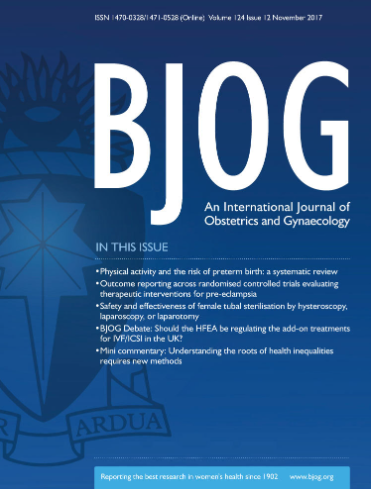A Care Bundle Aiming to Reduce the Risk of Obstetric Anal Sphincter Injury: A Survey of Women's Experiences
Abstract
Objective
To study experiences of women who gave birth in maternity units that have implemented a ‘care bundle’ quality improvement initiative to reduce obstetric anal sphincter injury (OASI) and associated morbidity.
Design
Postnatal electronic questionnaire.
Setting
Twenty-nine maternity units across England, Scotland and Wales.
Population
Women with live vaginal births.
Methods
Descriptive statistics for quantitative results. Analysis of free-text responses informed by framework method.
Main Outcome Measures
Experience with components of the care bundle: information provision, manual perineal protection (MPP) and post-birth rectal examination.
Results
In this study, 1208 women completed the survey: 684 (56.6%) said they received antenatal information about perineal health, 377 (31.2%) recalled MPP, and 664 (55.0%) recalled rectal examination. Of the 684 women who said they received antenatal information, 595 (87.0%) agreed that the information was easy to understand, and 423 (61.8%) agreed that it helped them to make their own choices to reduce their OASI risk. One hundred and fifty-four (22.5%) agreed that the information made them fearful about giving birth vaginally. Of the 377 women who recalled MPP, 203 (53.9%) felt it provided them with support, and another 97 (25.7%) did not mind the sensation. Of the 664 women who recalled rectal examination, 281 (42.3%) did not mind the exam, and another 335 (50.5%) felt it was uncomfortable but understood its importance. Free-text responses aligned with quantitative results.
Conclusions
Many women did not recall MPP or rectal examination. The reported experiences for those who recalled these components do not support concerns that the OASI care bundle has negative effects on women's experiences.


 求助内容:
求助内容: 应助结果提醒方式:
应助结果提醒方式:


